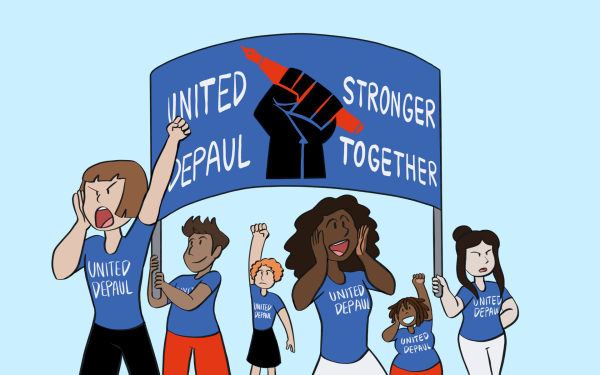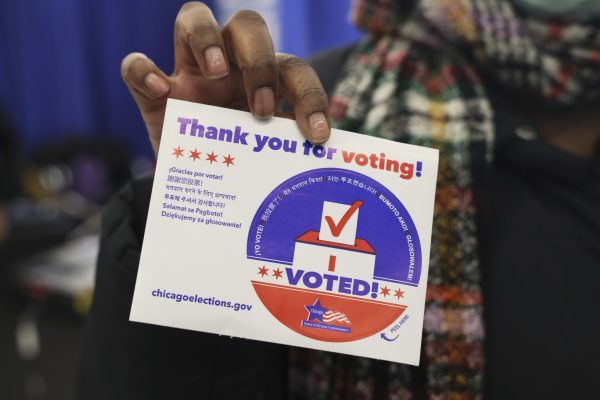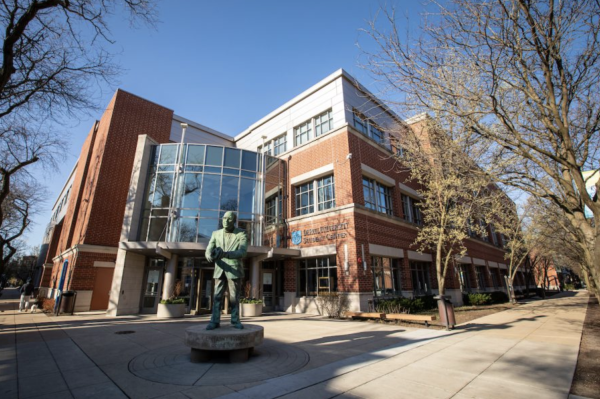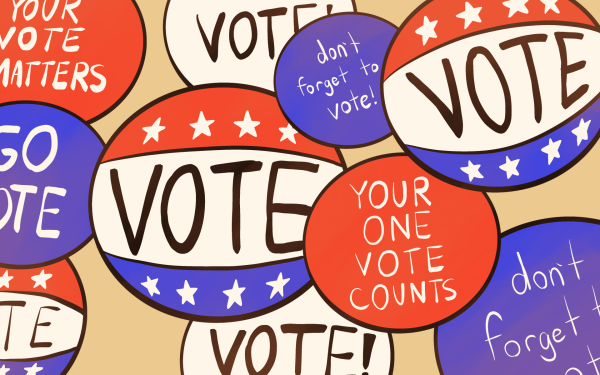Tipped workers battle over wage increase in Chicago
Many restaurant workers support a proposed ordinance that would increase their hourly wage to $15 by 2021, although some have mixed feelings and fear that if that happens, their tips could decrease over time.
The legislation being contemplated by the city of Chicago focuses on combating the unpredictability and inconsistency of tips in the restaurant industry and other tipped industries. The ordinance would remove the subminimum wage that allows employers to count workers’ tips toward their base pay.
Employers who pay tipped workers as low as $6.40 an hour would have to pay them the regular minimum wage. The ordinance, introduced in June, also wants to raise Chicago’s minimum wage to $15 an hour by 2021. Chicago’s current minimum wage is $13 an hour.
Many students who go to DePaul work in the restaurant industry, like Ariana Underwood and Lucia Chavez, agree that it’s time to increase tipped workers’ wages.
“I most definitely would support raising the wage of tipped workers to a minimum wage of $15,” said Underwood, who works at Punch Bowl Social in the West Loop and majors in political science at DePaul. Underwood is a senior and has worked in restaurants since she was 16 and has been a server for six years now.
Chavez agrees with Underwood that restaurant workers deserve to be paid more.
“Not knowing if your next paycheck is going to be enough to pay your bills or even just not enough for the effort and exhaustion endured during your shifts can be very stressful,” said Chavez, who is a busser at Fogo de Chao and a senior at DePaul majoring in business administration. “I am behind the idea of raising minimum wage to $15 an hour, also for the fact that nowadays many millennials find it difficult to even tip well due to their own financial struggle.”
While the ordinance does not discourage tipping, the effect could be that tips decline. A Census Bureau report found that the increase in wages paid by the employer were matched by a decrease in tips.
Although Underwood supports the ordinance, she also fears that if her hourly wage were to increase that tipping could decline among customers.
“I believe, in a sense, it would discourage the idea of tipping,” Underwood said. “However, the truth is most people already do not tip well and when you do have a really poor tip on a very good tab, considering most restaurants and places also tip out other employees helping, you can end up basically paying for a customer’s meal if they leave little to no tip.”
“A large percentage of the population believes servers are making more than they are and have no idea the actual pay grade of servers,” Underwood said. “I’d argue it would affect customers tipping abilities but not as much as it would positively affect servers by having a livable wage, instead of us expecting tips to make up the extra $7 an hour to make a livable wage.”
The average hourly wage of servers in the Chicago, including reported tips, was $11.23 in 2018, according to Bureau of Labor Statistics.
“Raising minimum wage could spark fear in some tipped workers just because if customers begin to tip significantly less, we would be back to square one and that is not earning enough money for the job we do,” Chavez said. “Hopefully this change would eventually lead to all of us being paid appropriately by the hour and kick tipping out the door for good. Tipping is only customary because it is not only a social norm, but because we all know we have only tips to rely on to be able to live a financially stable life.”
Chris Roberts, director of hospitality graduate programs at DePaul, also supports a living wage for all employees in the hospitality and restaurant industry, but said if the ordinance goes through it would be difficult for a business to be sustainable overtime.
“It could eliminate jobs because a lot of companies are moving towards automation to make their food or clean their sheets,” Roberts said. “Businesses will need to figure out a way to cover the costs by utilizing technology which could possibly mean less jobs in the hospitality industry.
“The awareness of them (tipped employees) making less money absolutely adds to the fact the people tip more because they feel sympathetic,” he continued. “If they were to make $15 an hour, I believe the thought process for people would change and they would tip less overtime.”
The standard for tipping can range anywhere from 15 to 20 percent, but many customers tip below 15 percent and there’s no control over a slow week or month. Tipped workers and servers at high-end restaurants can make a decent living on tips when it’s busy, but many tipped workers at small or inexpensive restaurants have a difficult time supporting themselves if it’s slow.
Ruben Villegas, a server at Michael’s Original Pizzeria & Tavern, a small, inexpensive single-location restaurant, said he would only support the ordinance if he is able to make the same money in tips that he does now.
“I’m a single father of two young daughters and one of them just started college, so I’m the only one bringing an income to my house,” Villegas said. “If it’s a slow week, I make maybe $10 an hour including tips, but if it’s a busy week then I’ll make $25 an hour. If I’m going to make $15 an hour but not get the same amount in tips then I disagree entirely with it.”
Villegas’ co-worker and cousin, Serafin Villegas, also agreed with Ruben.
“It would definitely be in the back of my mind that I could get less tips if this goes through,” Serafin said. “I have mixed feelings about it.”
Serafin has worked in the restaurant industry for over 25 years and said tips are everything to restaurant workers because the base pay is so low.
Lawmakers in Minnesota, Oregon, Washington, Nevada, Alaska, Montana and California have already mandated employers to pay their employees the same minimum base wage, regardless of tips, and it looks like Chicago might be heading that way.












